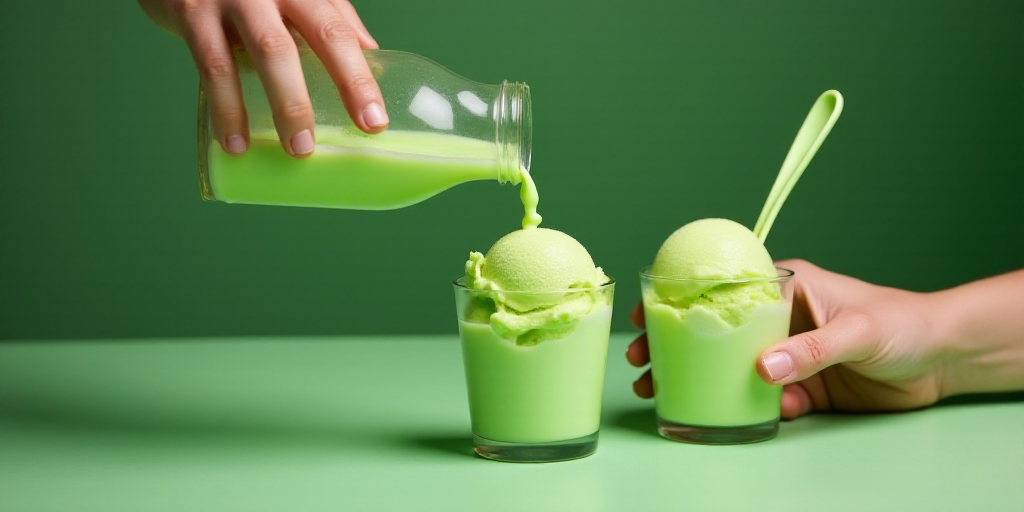The Rising Popularity of Matcha and Its Impact on Japanese Producers
In the heart of Los Angeles, customers line up at a new matcha shop filled with bamboo shelves, ceramic bowls, and handcrafted teaware. Matcha, a type of powdered green tea, has become the latest trend in healthy beverages on social media and in tea shops worldwide. However, Japanese producers are facing challenges to meet the soaring global demand.
Matcha’s Soaring Demand and Price Increase
According to Zach Mangan, founder of tea specialty company Kettl, in just one year, production has been overwhelmed by a surge in demand, causing a 198% increase in matcha’s price in Japan. Mangan notes that out of 25 matcha varieties offered, 21 are currently out of stock.
The Matcha Boom on Social Media
The matcha craze originated on social media, with influencers like Andie Ella, a 23-year-old French woman with 600,000 YouTube followers, popularizing the vibrant green drink. Her Tokyo Harajuku boutique sees numerous fans eager to take photos and purchase her strawberry or white chocolate-flavored matcha teas. Since its November 2023 launch, her brand has sold 133,000 cans of matcha produced in the Mie region, with demand continuing to grow.
Nutritional Benefits and Global Market Growth
While many appreciate matcha’s taste, others are drawn to its nutritional benefits—rich in antioxidants and capable of enhancing focus due to its caffeine content. In 2024, matcha accounted for nearly half of Japan’s 8,798-ton green tea exports, double that of a decade prior. The global matcha market is estimated to reach $3.3 billion in 2024, but it faces several challenges.
Trade Tensions and Tariff Concerns
Mangan warns that customers express concern over matcha shortages, saying, “They want matcha before it’s gone.” In Japan, the average price for high-grade tencha tea reached a record 8,235 yen (approximately $57) during the first seasonal auction in Kyoto, 1.7 times higher than the previous year.
Mangan also fears potential tariff increases on Japanese products by the US, rising from 10% to 24% in July. He states, “It’s a challenging period. We’re trying to absorb some of the costs, but there are limits; we can’t keep raising prices indefinitely.”
Precarious Situation for Japanese Matcha Producers
Japanese matcha producers face a precarious situation, with the number of agricultural operations reduced to a quarter over two decades. Masahiro Okutomi, a 15th-generation tea family business leader in Sayama, near Tokyo, says, “I had to put on our website that we no longer accept new orders.”
Matcha production is a labor-intensive, artisanal process involving shade-grown tea leaves (tencha) harvested by hand, with stems removed before finely grinding. Okutomi explains, “It’s a long-term job requiring equipment, labor, and investments. I’m happy the world is interested in our matcha, but it almost feels like a threat: we can’t keep up with the demand.”
The Japanese government encourages large-scale tea production to cut costs, but Okutomi notes, “In small rural areas, it’s nearly impossible… Training the next generation takes time; you can’t rush it.”
Key Questions and Answers
- What is matcha? Matcha is a finely ground powder of specially grown and processed green tea leaves, commonly consumed in Japanese tea ceremonies.
- Why is matcha popular? Matcha’s vibrant green color, unique taste, and perceived health benefits (rich in antioxidants and caffeine) have driven its popularity, especially among social media influencers and health-conscious consumers.
- What challenges do Japanese matcha producers face? Producers struggle to meet the surging global demand, facing issues like labor-intensive production methods, rising input costs, and trade tensions that could increase tariffs on Japanese exports.
- How have prices changed? Due to increased demand, matcha prices in Japan have risen by 198%, with high-grade tea reaching record prices at auctions.
- What is the global matcha market size? The global matcha market is projected to reach approximately $3.3 billion in 2024.






